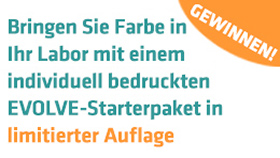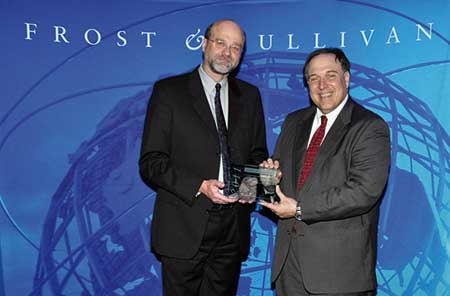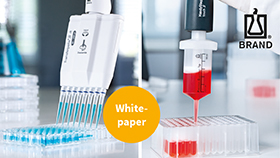Be Curious and Ask Odd Questions -
Interview with Thomas Henkel, CEO of Targos
Career strategies for young European scientists
by Ralf Schreck, Labtimes 01/2016
Page 1 | Page 2 | Page 3
Throughout your professional life it seems that you have always been looking for challenges with promising research groups or companies that had just been established. Intention or coincidence?
Henkel: Indeed, I was always attracted by the prospect of pioneering work and spirit, which usually brings together the most interesting people.
This certainly holds true for joining Tularik as a postdoc, two years after it has been founded by the pre-eminent scientists Robert Tjian, Steve McKnight and David Goeddel. Tularik turned out to be quite successful and was later acquired by Amgen for USD 1.3 billion. What were the major differences between working at the Munich lab with just a couple of PhD students and a newly-founded company with high ambitions?
Henkel: The biotech environment in the Bay Area was highly dynamic at that time and the resources for research were endless. We were able to meet world leading scientists basically on a daily basis, in seminars or collaboration projects. Most impressing though was the team spirit, which was in clear contrast to many high profile university research labs, where stiff intra-lab competition among the scientists was and still is common. The time at Tularik lured me into the biotech world, although there had been options to return into academia.
How did your research visits to the Salk Institute in San Diego (USA), the Lautenberg Center of Tumor Immunology in Jerusalem (Israel), or the international community of fellows of the Boehringer Ingelheim Fonds (BIF) shape your career?
Henkel: Both visits during my PhD thesis allowed me to develop confidence in my ability for independent research. Taking your research into a different lab, getting asked different questions and applying different methods, unravels new aspects of your work. In addition, the stays in San Diego and Jerusalem personally let me experience a wonderful time at impressive institutions, meeting with people from all over the world. I was grateful to get this opportunity funded by the BIF. The ever growing BIF alumni are a valuable resource. You are always able to meet a peer, who has the same background and is in the same phase of life or career as you are.
Why did you decide after your postdoc not to stay in the US and return to the Munich area?
Henkel: Again, it was my attraction to pioneering work and my decision for the biotech industry. Martinsried was the hot-spot of German Biotechnology in its infancy. It was hard to leave San Francisco but Munich offered a lot.
The biotech sector in Germany was about to pick up speed in the mid-1990s. The spin-off MediGene had just been founded by Horst Domdey, Peter Heinrich, Michael Hallek and Ernst-Ludwig Winnacker, a year before. How about your work as Head of Molecular Cardiology at MediGene? How was the transition from lab scientist to lab manager?
Henkel: To help build a company from scratch was exciting. Molecular Cardiology was something absolutely new. We applied the latest methods to old challenging questions. What goes wrong in the failing heart on a molecular level? We compared failing and non-failing heart tissue on protein, RNA and DNA and functional level, and developed new potential targets for heart failure therapies. Initially, I even worked at the bench myself but with a quick growing research group, my tasks shifted into innovation management in a fast growing company.
From 2003 to 2005, you were Head of Biomedical Research at the Klinikum Kassel GmbH. Did you want to return to the academic sector? Or was it already clear from the beginning that this would only be a transition stage?
Henkel: In fact, it was pretty clear to me that this was a transition phase. From 1995 to 2003 MediGene had matured into a clinical development company. I was leading the company’s research efforts in Cardiology and Oncology and had represented the research in the successful IPO in the year 2000. My main tasks had shifted dramatically. As Vice President Research in a small public company, the interaction with fund managers and investors was very prominent, involving many days away from home. Having a family and a little son, raised my awareness for other options. I met this opportunity in the person of my future co-founder, the pathologist Josef Rüschoff in Kassel, where I was giving a lecture. Josef was Director of the Institute of Pathology at the largest hospital in Kassel and he had just started to analyse tissue biomarkers in oncology for the pharmaceutical industry. I quickly recognised the future potential of targeted therapies and predictive biomarkers in oncology, and the need for molecular pathology services.
In 2005, you became a co-founder and the CEO of Targos Molecular Pathology GmbH. Please tell us about the beginnings.
Henkel: Immediately after the Klinikum Kassel offered me the new position as Head of Biomedical Research, it became clear that developing this activity would be rather difficult within the constraints of a large public community hospital. We organised the research group like a little company, attracted very good people and were able to offer the pharma industry professional services. After 1.5 years, spinning off the activities in an independent company was inevitable for further survival and further growth. In 2005, the FDA issued the guidance that future drug approvals will strongly depend on the availability of high-quality data, confirming that individual patient subgroups benefit more, less or not at all from a new therapy. In oncology, this informed decision can be made using tissue biomarkers – the hallmark was the status of the Her2 marker for tumour therapy with the drug Herceptin. This guidance by the FDA sparked the interest in the services offered by Targos dramatically, and we experienced a huge demand and market pull.
Page 1 | Page 2 | Page 3
Last Changed: 02.03.2016







